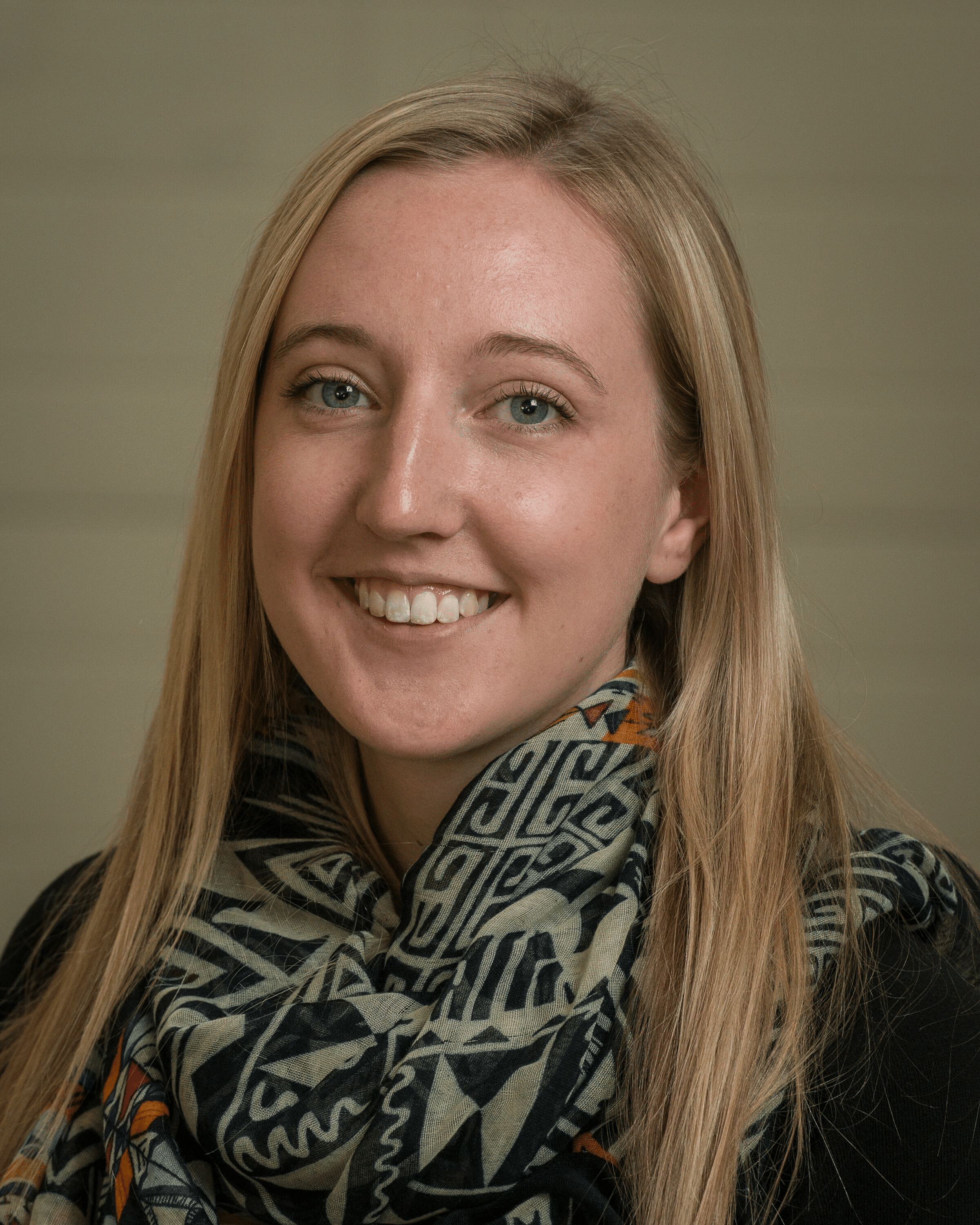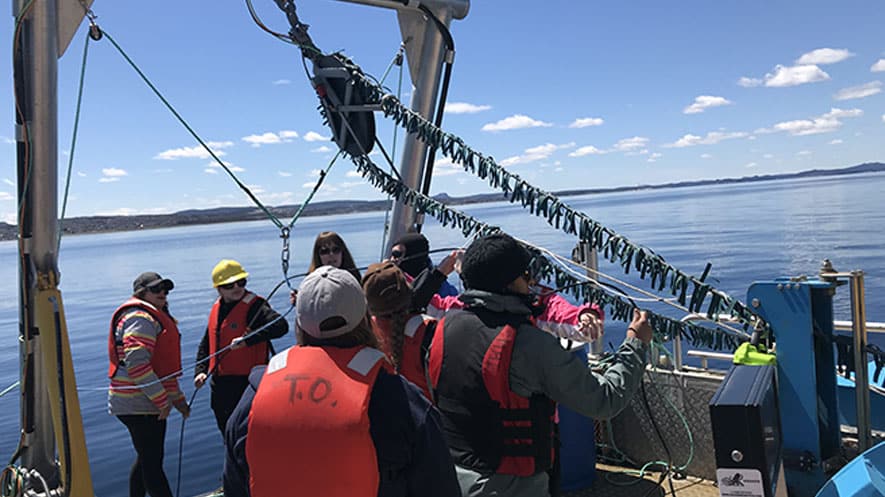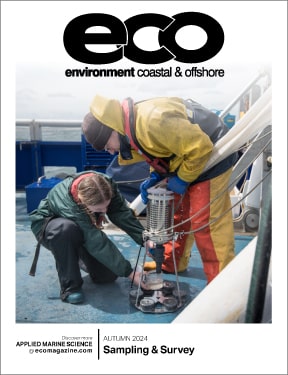Jillian Duggan, 25, the in-house biologist and ocean technologist at Ocean Sonics is a newly certified PAM, passive acoustic monitoring, operator. Duggan passed the Edgewise Environmental PAM operators course with merit last week in Newfoundland. She also participated as a guest lecturer during the course, instructing on hydrophone use within PAM systems.
 The course is the first of its kind to be offered. Based on Canadian standards for Mitigation of Seismic Sound in the Marine Environment, the course shows students how to use PAMGuard technology to identify the sounds of at risk and endangered marine mammal species and mitigate the sound of seismic survey air guns, providing the animals safe passage through seismic work areas.
The course is the first of its kind to be offered. Based on Canadian standards for Mitigation of Seismic Sound in the Marine Environment, the course shows students how to use PAMGuard technology to identify the sounds of at risk and endangered marine mammal species and mitigate the sound of seismic survey air guns, providing the animals safe passage through seismic work areas.
As the offshore industry continues to thrive in Newfoundland and Labrador, ensuring the protection of marine mammals and their natural environment is close to Duggan’s heart. Seeing firsthand the increased awareness and protection that acoustic monitoring offered at risk species, Duggan sees PAM systems as an excellent solution for mitigating the dangerous effects of ocean noise pollution.
“Any operations that occur in the ocean introducing noise pollution should have the protection of all marine species in mind,” says Duggan, “PAM systems will allow these operations increased ability to detect marine mammals in the area and mitigate appropriately.”
Duggan’s participation in the PAM operators course was inspirational in more ways than one for the young technologist. Being a female in a typically male dominated field has been at times difficult. With few role models and little representation, participating in a course led by female experts and learning alongside nine other keen female students, the momentous nature of the course was not lost on her.
“Women in STEM face many obstacles in reaching their goals and obtaining careers in male dominated industries,” said Duggan, “Having this course taught by women with strong scientific backgrounds and experience in industry will hopefully show others that there are opportunities for them.”
Duggan sees a shift in the industry. Gender is still a barrier in male dominated STEM careers, however many talented and capable women are breaking these barriers down, becoming role models and experts in their field.
“For myself, women in my field have given me the support and confidence in myself to teach and lead others. Hopefully I will be able to be that person for others in the future.”
Duggan’s outlook on implementing PAM systems within the ocean technology industry and beyond is hopeful. As industries begin moving toward more environmentally friendly practices, PAM systems will find strong footholds in our oceans. With women like Duggan breaking down gender barriers, it’s only a matter of time before we see great representation of intelligent, passionate women leading the way in ocean innovation.

